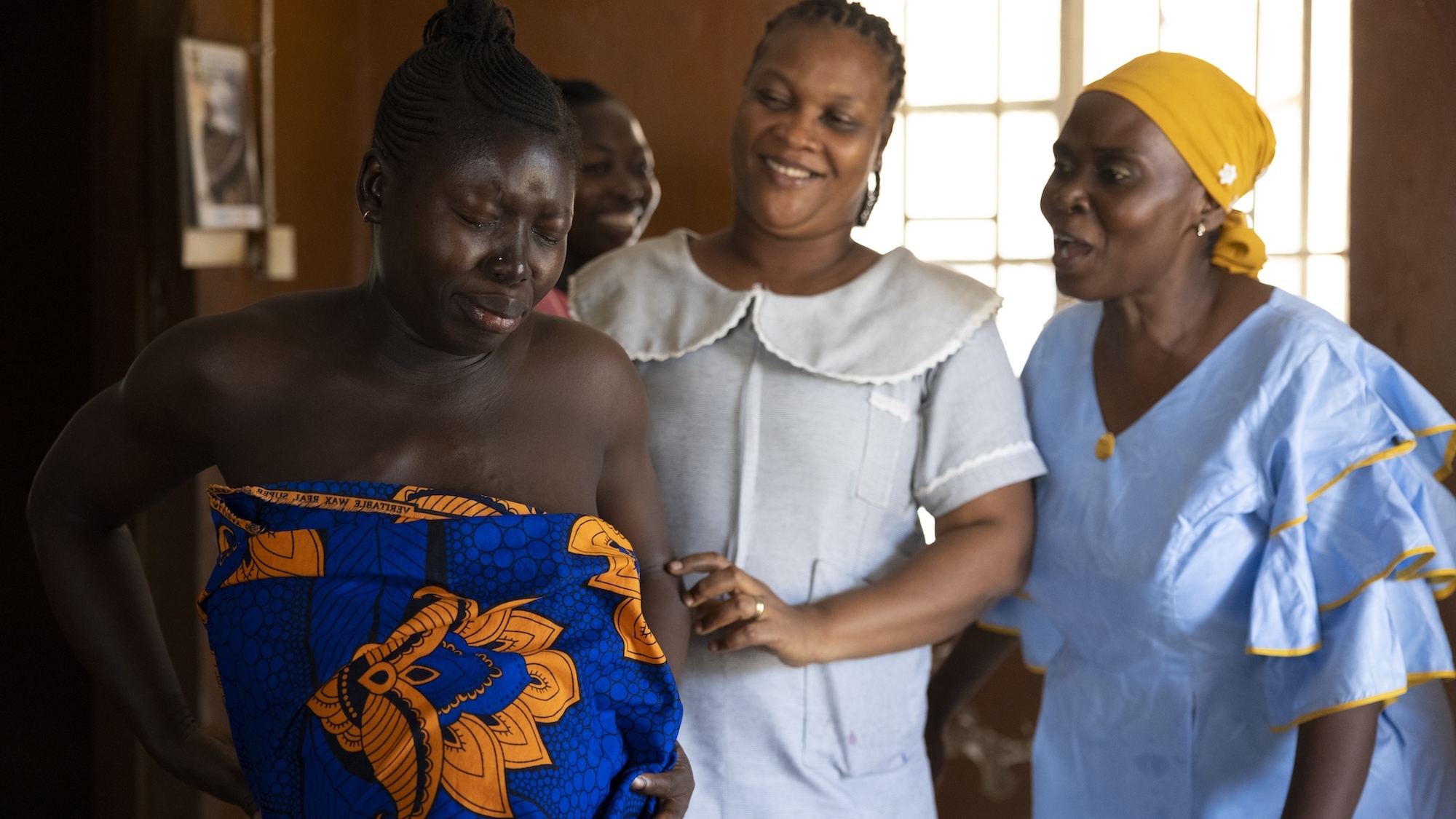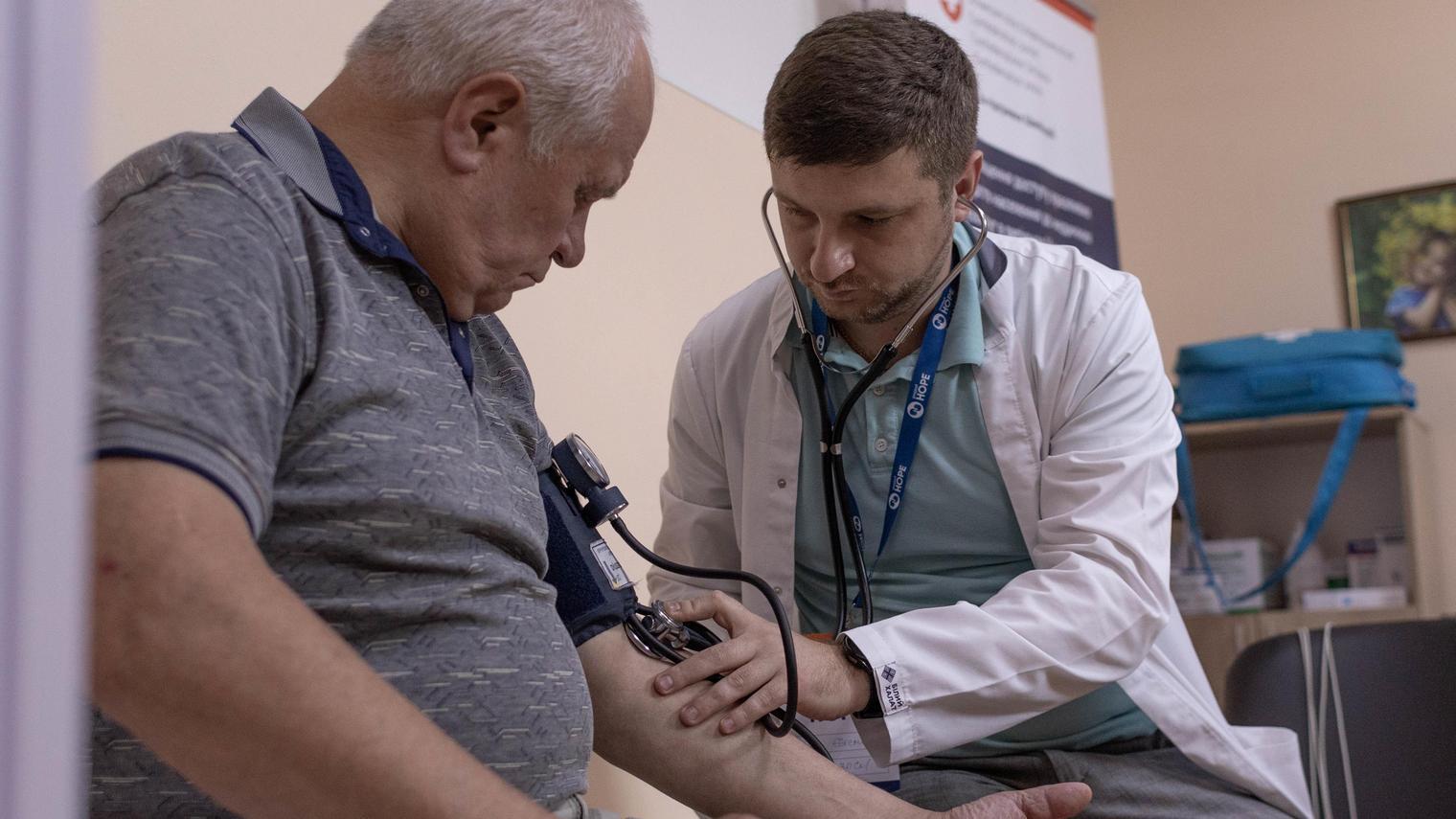Deadly Flooding Impacting Earthquake Survivors in Türkiye: Exacerbating Need for Support
Project HOPE, is sounding the alarm for urgently needed support as deadly flooding impacts earthquake survivors in the Adiyaman and Şanlıurfa provinces of Türkiye just five weeks after the back-to-back 7.8- and 7.5-magnitude earthquakes.

Washington, DC (15 March 2023) – The global health and humanitarian aid organization, Project HOPE, is sounding the alarm for urgently needed support as deadly flooding impacts earthquake survivors in the Adiyaman and Şanlıurfa provinces of Türkiye just five weeks after the back-to-back 7.8- and 7.5-magnitude earthquakes. Inclement weather in recent days has complicated humanitarian efforts across the earthquake zone. Extensive rain caused flash flooding, trapping cars and people and exacerbating access to basic services. Telecommunication systems are down in some areas and the water supply has been heavily compromised. Rain has also impacted formal and informal displacement settlements, flooding tent communities and further compromising the precarious water, sanitation, and hygiene (WASH) systems.
“The devastating flooding taking place in Türkiye is greatly exacerbating an already life-threatening humanitarian crisis for the thousands of displaced earthquake survivors who are living in makeshift camps with limited access to basic needs,” said Chessa Latifi, Project HOPE’s Senior Program Advisor. “Project HOPE is continuing to concentrate our response efforts in the earthquake-impacted areas with continued consideration of those impacted by the flooding.”
Before the flooding, thousands of survivors were living in camps with varying levels of support. In many of the camps, particularly the informal camps that are primarily made up of already marginalized minority groups, there has been a significant need for housing, latrines, showers, and mental health and psychosocial support. Meanwhile, major seismic events continue to pummel southern Türkiye and northern Syria, including two earthquakes registering 4.7 and 4.5 in magnitude hitting Malataya and a 4.4 earthquake in Hatay, Türkiye this week.
More than one month since the first deadly tremors, the official death toll has climbed above 50,000, with an additional 132,000 injured. A rapid escalation of relief efforts—predominately in health, protection, psychosocial support, shelter, and WASH sectors —is urgently needed to meet the more than 9.1 million survivors in Türkiye and 8.8 million in Syria who have been directly impacted by the disaster.
“The current situation, coupled with the likelihood that it will take months, if not years, for impacted communities to recover, means that there are significant needs for a coordinated, targeted, and robust intervention across several sectors, including health, mental health and protection services (MHPSS), non-food items (NFI), shelter, and water, sanitation, and hygiene (WASH),” said Arlan Fuller, Project HOPE’s Director of Emergency Response & Preparedness.
Project HOPE is working closely with Turkish government officials, humanitarian agencies, and local non-governmental organizations to respond to extensive needs of the impacted population in Türkiye. The Emergency Response Team has completed and disseminated key findings of an assessment of health and WASH needs of the earthquake zone in Türkiye, found here. Project HOPE’s Emergency Response Team has secured 60 housing and latrine and shower containers and is coordinating the distribution of 15,000 hygiene kits for those who have been displaced.
In Syria, Project HOPE is working with a local partner to provide primary health support to earthquake-impacted communities in the northern region of the country. Project HOPE is also delivering an interagency health kit (IEHK) to a local partner in Syria to support primary health care services for up to 10,000 people over a three-month period. Additionally, Project HOPE is working with government officials to determine key mental health and psychosocial support interventions, which will aim to increase the resilience and physical and psychosocial health of the affected population with a special emphasis on women and female-headed households in the affected communities.
Interviews with members of Project HOPE’s emergency response team – including staff on-the-ground – are available upon request. Photos and b-roll of this disaster response are available here.
About Project HOPE
Founded in 1958, Project HOPE is a leading global health and humanitarian organization operating in more than 25 countries around the world. We work side-by-side with local health systems to save lives and improve health. Our mission is at the epicenter of today’s greatest health challenges, including infectious and chronic diseases, disasters and health crises, maternal, neonatal and child health and the policies that impact how health care is delivered. For more information on Project HOPE and its work around the world, visit projecthope.org and follow us on Twitter @ProjectHOPEorg.



